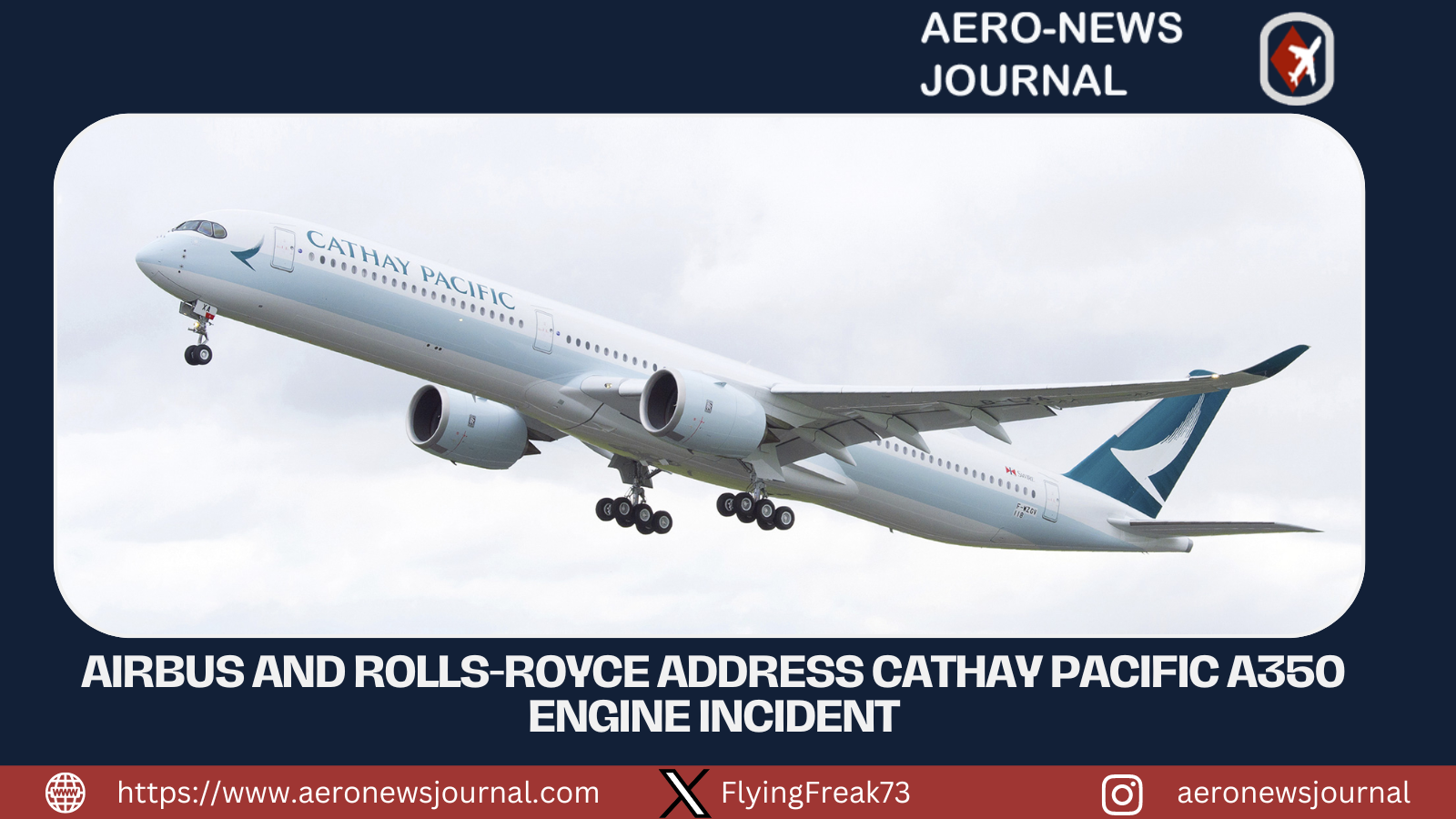
Airbus and Rolls-Royce, in response to a recent engine incident involving a Cathay Pacific Airbus A350, are set to address airlines directly, according to sources familiar with the matter. This incident, which occurred on a flight from Hong Kong to Zurich, forced the aircraft to return to Hong Kong shortly after takeoff due to an engine component failure. The event has not only spotlighted the reliability of the Rolls-Royce Trent XWB-97 engines, which power the A350-1000, but also prompted a broader inspection across Cathay Pacific's fleet.
.gif)
The incident led Cathay Pacific to ground its entire fleet of 48 Airbus A350 aircraft for inspection, revealing that 15 of these jets required the replacement of specific engine components. This precautionary measure resulted in the cancellation of numerous flights, affecting travel plans across the airline's network. The shares of Rolls-Royce experienced significant fluctuations, initially dropping by 6.5% but later recovering some ground after it was announced that the necessary repairs could be conducted with minimal disruption, and the fleet was expected to return to full operation by Saturday, September 7th. Rolls-Royce, in its initial response, confirmed its awareness of the incident and expressed commitment to collaborating with Cathay Pacific, Airbus, and relevant authorities to investigate the matter thoroughly. The company's statement also reassured that they would keep other airlines informed of any developments, particularly those operating aircraft with the same engine type, indicating a proactive approach to managing potential risks.
The engine in question, the Trent XWB-97, is exclusive to the A350-1000, the larger variant of Airbus's A350 series, known for its efficiency and range. This exclusivity places Rolls-Royce in a unique position where any issue with this engine model could have widespread implications for the aviation industry, given its use by multiple airlines globally. Airbus, while referring inquiries to Rolls-Royce and Cathay Pacific, has maintained that it is closely monitoring the situation. The aircraft manufacturer's silence until now might be attributed to the ongoing investigation, where premature statements could complicate the process or misinform the public. The forthcoming briefing by Airbus and Rolls-Royce to airlines is anticipated to provide clarity on whether the incident points to a systemic issue with the Trent XWB-97 engines or if it was an isolated event. This communication is crucial not only for maintaining trust with airline operators but also for ensuring passenger safety and operational continuity.
The aviation industry, ever cautious of engine reliability due to past incidents with other manufacturers, watches closely. Airlines like Singapore Airlines and Japan Airlines have already initiated precautionary checks on their A350 fleets, indicating the ripple effect of such incidents across the sector. This situation underscores the delicate balance between technological advancement in aviation and the imperative for absolute safety. The response from Airbus and Rolls-Royce will be pivotal, not just for immediate operational concerns but also for the future confidence in the A350 series and its engines. As the industry awaits detailed insights from the manufacturers, the incident serves as a reminder of the high stakes involved in aviation safety and the interconnected trust between aircraft manufacturers, engine makers, airlines, and passengers worldwide.
